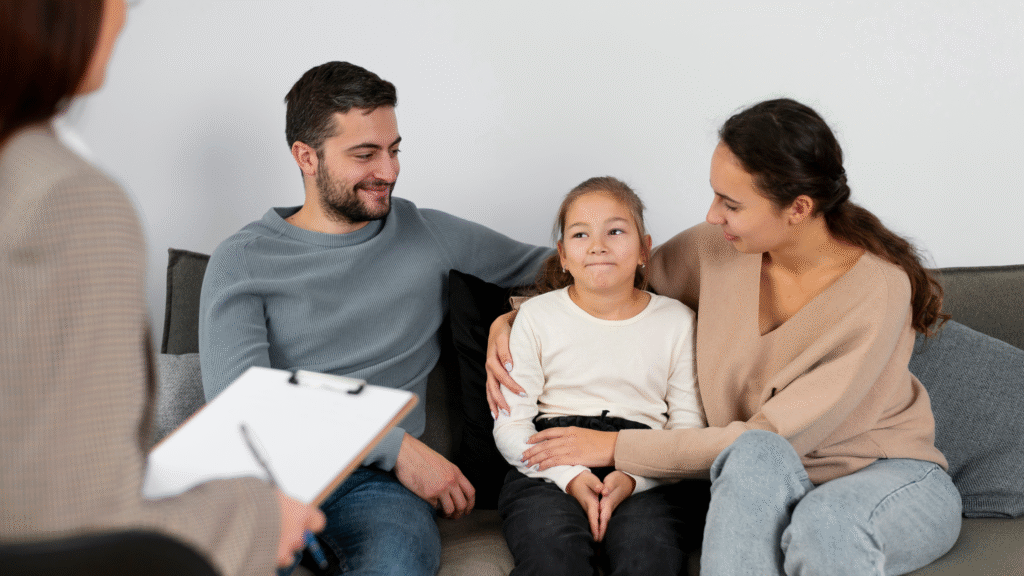“Children are not small adults. Their emotions are real, deep, and deserve to be heard.” In today’s rapidly changing world, children and adolescents are often caught between rising expectations and their evolving emotional worlds. While they may not always express their feelings clearly, their behaviors often speak volumes. At ShwetaHeals, we strongly believe that nurturing emotional intelligence during childhood and adolescence lays the foundation for healthier adults in the future.
Children may not have the vocabulary to talk about their feelings, but they experience the full range of emotions—anger, fear, sadness, loneliness, and confusion. These emotions often show up in different ways: sudden outbursts, defiance, withdrawal, difficulty in focusing, or even academic decline. What may appear as “just a phase” or “bad behavior” could be a sign of something deeper. Our role as adults is not to dismiss but to understand these signs with compassion.
At ShwetaHeals, our counseling programs are designed specifically for children and adolescents. We help young clients navigate issues like exam stress, bullying, attention difficulties (like ADHD), digital addiction, social anxiety, identity confusion, and emotional distress resulting from family conflict or parental separation. We also support children who are dealing with grief, relocation, or changes in routine—events that may seem small to adults but can deeply affect a child’s sense of safety.
What sets us apart is our child-friendly, interactive approach. We use tools such as play therapy, art-based activities, storytelling, and journaling to help children express their inner world in ways they feel safe. For adolescents, we integrate reflective techniques, guided self-awareness exercises, and structured conversations that allow them to feel understood without being judged. Each session is a mix of listening, exploring emotions, and teaching simple tools for self-regulation.
Parents are an essential part of the process. That’s why we often hold parent-counselor sessions to bridge communication gaps, resolve misunderstandings, and equip parents with practical strategies. Many times, we find that a small shift in parenting style—moving from criticism to connection—can transform a child’s behavior and confidence.
One example comes from an 11-year-old boy who was referred for aggressive outbursts and poor concentration. Through creative counseling sessions, he slowly began to talk about the pressure he felt at school and home. As he learned to name his emotions and apply calming techniques, his behavior improved. More importantly, his bond with his parents strengthened.
So when should parents seek counseling for their child? If your child is suddenly more withdrawn, aggressive, overly anxious, or struggling with sleep, appetite, or concentration—it’s time to check in. Early intervention can prevent the buildup of emotional distress and teach children healthy coping mechanisms for life.
In conclusion, child and adolescent counseling isn’t just about solving problems—it’s about shaping emotionally aware, self-assured individuals who grow up feeling seen and supported. At ShwetaHeals, we’re here to walk with your child and your family—through every emotion, every challenge, and every milestone of growing up.

